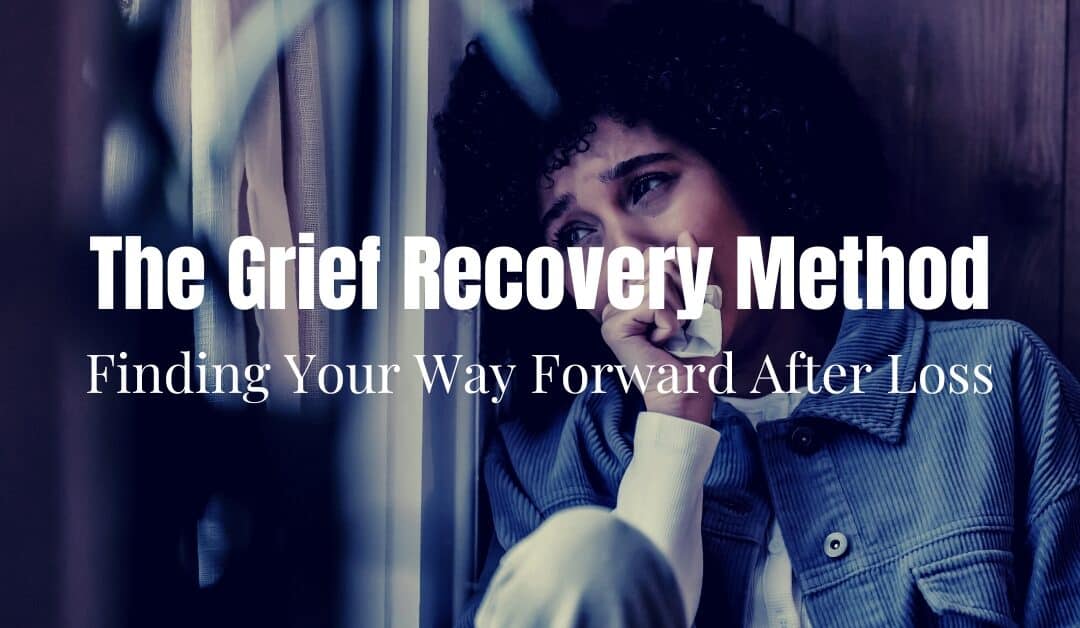You are not alone if you have experienced the heartbreaking pain of loss. Such moments can be some of life’s most challenging, and it is essential to discover how to cope with your grief. One powerful tool that can assist in this process is The Grief Recovery Method; a way forward that offers hope for the future. Read on to explore how The Grief Recovery Method may provide much-needed recovery from your loss. We’ll also explore other ways to face grief and find hope again!
Painful Feelings Are a Normal and Natural Reaction
Grief is a natural emotional response to loss. However, in our society, we often don’t seek out the supportive guidance we need. Grief is instead brushed under the rug as we go on with our lives. In our world, recovery often just means planning a funeral and moving on.
However, unresolved grief can mean you “feel bad” all the time. You might not allow yourself to feel sad “out loud,” but according to the Grief Recovery Method, the feelings come through in other ways, such as:
- Reduced concentration
- A sense of numbness
- Disrupted sleeping patterns
- Changed eating habits
- Roller coaster of emotional energy (1)
Recovery from losing a loving or not-so-loving relationship means letting yourself deal with grief by expressing your grief. Natural grief is a normal part of recovery!
Grieving well means taking the time to ask yourself questions about how your heart is doing. It means listening to yourself as if you matter and giving yourself the sense of “It’s okay not to be okay.”
You may suffer physical symptoms and underlying sadness until you do the work of grief. The overwhelming sadness can lead you to join a grief recovery group or see a friend or counselor to talk about your feelings. Seeking others to listen in your sorrow is a normal response to grief!
However, an understanding of the grief process can also help you understand what you’re going through.
The Grief Recovery Institute & The Grief Recovery Handbook
The Grief Recovery Handbook outlines a proven action-based program by John W. James and Russell Friedman for any major loss, including:
- Loss of romantic relationship
- Loss of spouse
- Pet loss
- Loss of a relationship through death
- Loss of health
- Faith loss
- Job loss
- Loss of children
- Any significant loss that causes sadness
This evidence-based recovery program advocates that you feel the conflicting feelings caused by a loss to heal. We all feel bad when we suffer from a broken heart. However, according to the Grief Recovery Institute and the Grief Recovery Method, you can also enjoy fond memories of someone along with your sad memories to get on the path to recovery and healing.
Using the Grief Recovery Method tools in this helpful manual, you may see that the fear of feeling your emotions can keep you from moving through the recovery process. (2)
Specific actions that can keep you from grieving well and prevent your recovery include the following:
- Focusing only on the devastated feelings, suffering, and hurt
- Identifying as someone with a permanently broken heart
- Seeing your wounds as unhealable
- Feeling like you aren’t ready to begin to heal
- Refusing to imagine your life beyond our grief
- Staying too busy to feel your grief
Finding Your Way Through Grief With Others
It’s crucial to express the grief you feel about a loss (and help children process their feelings) by spending time with others. Whether you use The Grief Recovery Method, join a grief support group, or spend time with friends or family, expressing your grief is crucial to healing.
Even writing in a journal or praying can help you feel your natural emotional response to unresolved grief. Recovery means feeling your difficult emotions before moving forward.
Grief recovery takes time but giving yourself and your family time to heal is a part of your life journey. Death is a part of life. We all face the end of a relationship at some point in our lives.
Learning how to grieve well can help you and your family meet other losses in the future and recover, whether from death, divorce, job loss, health loss, or other struggles.
When Grief Sticks Around
If you have trouble facing your emotions and moving forward, it can help to join a grief recovery group such as Transitions GriefCare. This trusted community resource offers bereavement support to people coping with the death of a family member, colleague, or friend.
Their professional staff provides short-term counseling, support groups, workshops, and other services designed to compassionately meet the needs of adults, children, and teens seeking to address the unique challenges of grief and create a path toward healing.
Grief support is available at no cost to residents of Chatham, Durham, Franklin, Granville, Harnett, Johnston, Orange, and Wake counties, regardless of whether Transitions LifeCare served the family.
Our Experienced Funeral Home Directors Can Help
At Renaissance Funeral Home and Crematory, we understand the pain of loss and are here to help as you mourn the death of a loved one. We create beautiful and memorable events where family and friends can gather to begin healing.
Your relationships with loved ones are more crucial than ever right now. We help bring you closer together as you deal with the pain of loss.
Reach out today, and let us help you through this difficult time. We are here for you and ready to walk you through your next steps.


